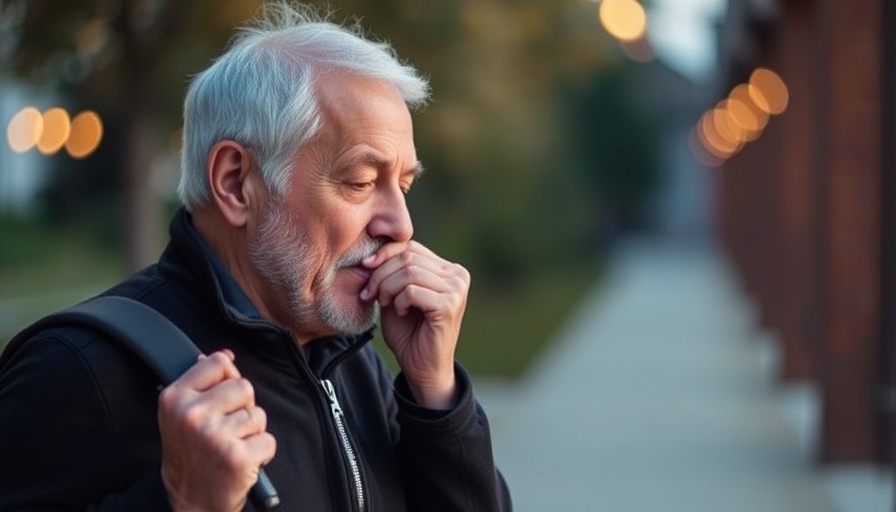
Understanding the Link Between Exercise and Mental Health in Seniors
Exercise has long been heralded as a key component of physical health, but its effects on mental well-being are equally significant, particularly among older adults. Recent studies have shown that engaging in regular physical activity can reduce the risk of depression and improve sleep quality, especially for older smokers. This is particularly relevant as smoking has been linked to various mental health issues and sleep disturbances.
Why Older Smokers Are at Risk
Older smokers face a unique set of challenges when it comes to mental health. Smoking is associated with increased rates of anxiety and depression, partly due to the physiological effects of nicotine and withdrawal. Additionally, the stigma surrounding smoking can exacerbate feelings of isolation and low self-esteem. Understanding these factors is crucial for developing effective mental health strategies.
The Power of Regular Exercise
Exercise acts as a natural antidote, helping to alleviate symptoms of depression and improve sleep quality. Regular physical activity promotes the release of endorphins, known as the 'feel-good' hormones, which can boost mood and alleviate feelings of sadness. Furthermore, exercise helps regulate sleep patterns, making it easier for older smokers to achieve restorative sleep, which is vital for both mental and physical health.
Practical Tips for Incorporating Exercise
For older adults, especially those who smoke, incorporating exercise into their daily routine can seem daunting. Here are a few practical tips to get started:
- Start Slow: Begin with short walks or low-impact activities like swimming or cycling. Gradually increase the duration and intensity as fitness improves.
- Find Enjoyment: Choose activities that are enjoyable, such as gardening, dancing, or group classes, to make exercise feel less like a chore.
- Set Realistic Goals: Aim for achievable fitness goals that encourage consistency without overwhelming yourself.
Connecting Exercise and Wellness Resources
Engaging in exercise can open the doors to numerous health and wellness resources. Facilities offering specialized senior fitness programs can provide support, guidance, and a sense of community that can enhance both physical health and mental well-being. Local health clubs, community centers, and even online platforms offer various classes tailored for older adults.
The Importance of Community Support
Social connection is a crucial aspect of both physical and mental health. Communities that encourage regular group activities, such as walking clubs or fitness classes, can significantly impact the mood and well-being of older adults. Connections formed in these settings provide the companionship crucial for combating the isolation often felt by older smokers and can serve as a motivational boost for maintaining fitness routines.
Future Trends in Elderly Wellness
As awareness grows around the mental health crisis among the elderly, we can expect to see an increasing number of tailored wellness programs specifically aimed at older smokers. Innovations in fitness tracking technology, combined with support groups that focus on quitting smoking, can foster an environment that actively promotes healthier lifestyle choices.
Embracing Change for Better Mental Health
Taking the first step towards a more active lifestyle can feel overwhelming, but it’s crucial for older smokers to embrace change. Harnessing the power of exercise through structured programs and community support can pave the way for not only improved physical health but a brighter and healthier mental state.
In conclusion, prioritizing physical activity is essential, especially for older smokers dealing with the dual challenges of mental health and addiction. By taking actionable steps and seeking out community resources, older adults can significantly improve their quality of life.
 Add Row
Add Row  Add
Add 



Write A Comment